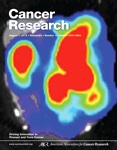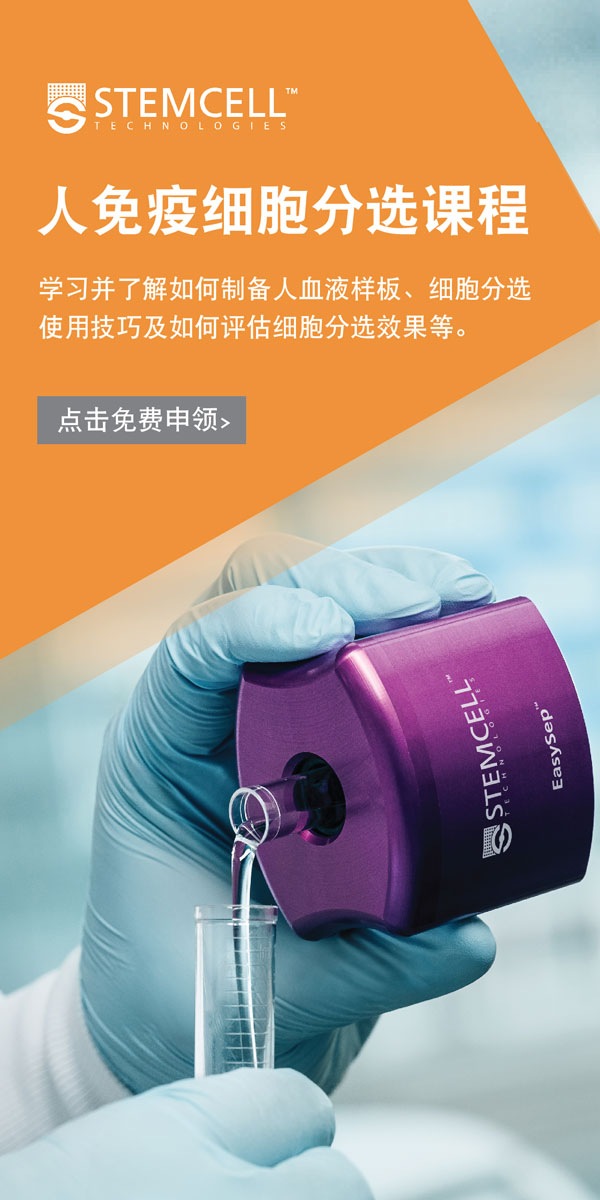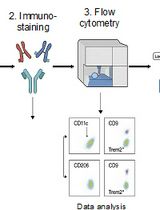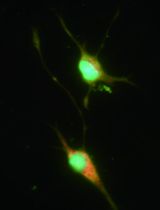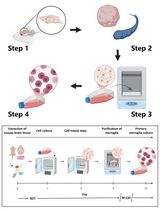- EN - English
- CN - 中文
Generation of Human iNKT Cell Lines
建立人源的iNKT细胞系
发布: 2013年03月20日第3卷第6期 DOI: 10.21769/BioProtoc.418 浏览次数: 23607
Abstract
Natural killer T (NKT) cells comprise an important immunoregulatory T cell subset and express cell surface proteins characteristic of both natural killer cells and T cells. Invariant NKT (iNKT) cells are activated by lipid antigen presented in the context of CD1d molecules, in contrast to classic T cell subsets which recognize peptide antigens presented by MHC molecules. Following activation, iNKT cells rapidly secrete large amounts of cytokines and can lyse tumor cells and virally infected cells; however, iNKT cells are reduced in patients with autoimmune disease and cancer. The potential to characterize and investigate the prospective use of iNKT cells for therapeutic purposes has significantly increased with the ability to stimulate and expand human iNKT cells. In this protocol, we describe a method to generate and propagate primary human iNKT cells. Specifically, primary iNKT cells were isolated from human peripheral blood mononuclear cells (PBMC), and then expanded periodically with irradiated α-GalCer loaded autologous immature dendritic cells (DC) in the presence of human IL-2.
Materials and Reagents
- Blood sample to collect iNKT cells
- Ficoll-Paque Plus (GE Healthcare Biosciences, catalog number: 17-1440 )
- PE-anti-Vα24Jα18 antibody (6B11) (Biolegend, catalog number: 342904 )
- Anti-CD16/32 antibody (Biolegend, catalog number: 101320 )
- Anti-Vα24 antibody (Beckman Coulter, catalog number: IM2283 )
- Anti-CD3 antibody (Biolegend, catalog number: 300312 )
- Recombinant human GM-CSF (R&D Systems, catalog number: 215-GM )
- Recombinant human IL-4 (R&D Systems, catalog number: 204-IL )
- Recombinant human IL-2 (Proleukin) (BD Biosciences, catalog number: 354043 )
- Human dendritic cell isolation kit (human CD14- magnetic microbeads) (MiltenyiBiotec, catalog number: 130-050-201 )
- Mitomycin C (Sigma-Aldrich, catalog number: M4287 )
- Human iNKT cell isolation kit (Vα24Jα18- magnetic microbeads) (MiltenyiBiotec, catalog number: 130-094-842 )
- α-galactosylceramide (α-GalCer, KRN7000) (Enzo Life Sciences, catalog number: BML-SL232 )
- RPMI-1640 medium (Life Technologies, Gibco®, catalog number: 11875 )
- Non-essential vitamin solution (Life Technologies, Gibco®, catalog number: 11140-050 )
- MEM Vitamin solution (Life Technologies, Gibco®, catalog number: 11120-052 )
- Sodium Pyruvate (Life Technologies, Gibco®, catalog number: 11360-070 )
- 2-mercaptoethanol (Life Technologies, Gibco®, catalog number: 21985-023 )
- Nalgene Freezing Container (Thermo Fisher Scientific, catalog number: 15-350-50 )
- Antibiotics: penicillin-streptomycin
- Heat inactivated fetal bovine serum
- MACS buffer (see Recipes)
- Complete medium (see Recipes)
Equipment
- Centrifuge with swing out rotor and capable of 300-700 x g
- BD LSR II flow cytometer (BD Biosciences)
- Sterilized Pasteur pipettes
- 50 ml conical tubes
- 0.22 μM filter
- T-175 flask
- T-25 flask
- 37 °C 5% CO2 incubator
Procedure
文章信息
版权信息
© 2013 The Authors; exclusive licensee Bio-protocol LLC.
如何引用
Li, X., Tsuji, M., Schneck, J. and Webb, T. J. (2013). Generation of Human iNKT Cell Lines. Bio-protocol 3(6): e418. DOI: 10.21769/BioProtoc.418.
分类
免疫学 > 免疫细胞分离 > 维持和分化
细胞生物学 > 细胞分离和培养 > 细胞分离
免疫学 > 免疫细胞分离 > 淋巴细胞
您对这篇实验方法有问题吗?
在此处发布您的问题,我们将邀请本文作者来回答。同时,我们会将您的问题发布到Bio-protocol Exchange,以便寻求社区成员的帮助。
Share
Bluesky
X
Copy link






